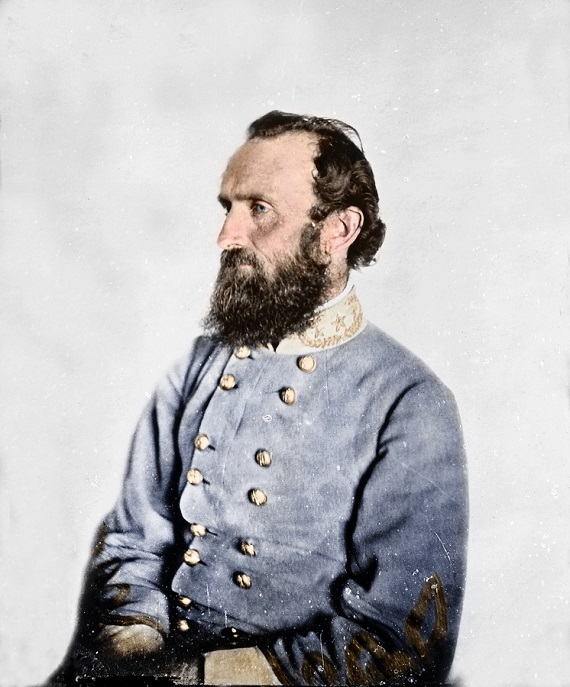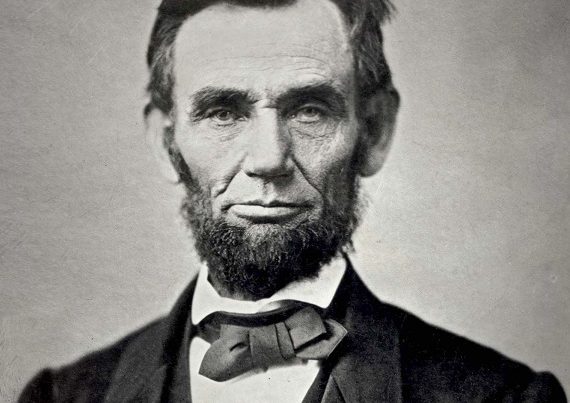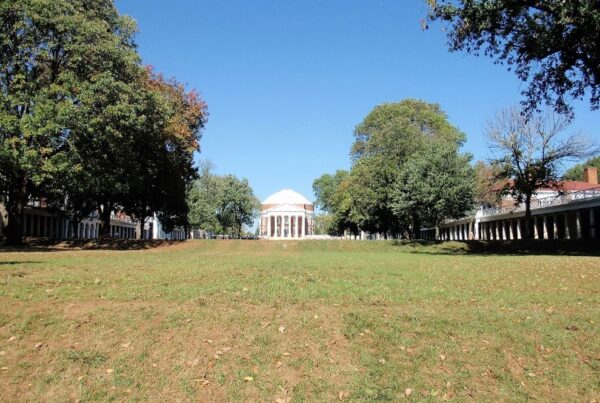Originally published at TruthScript.
Thomas J. (Stonewall) Jackson is one of the most well-known Confederate generals and beloved men of the South. He is also known for his devout Christian piety and service as a deacon in the Old School Presbyterian Church. Southern Presbyterian theologian and Confederate chaplain, R. L. Dabney, said that “Jackson’s religious character was strictly sincere and conscientious, above that of most Christians.” (1)
Another Southern Presbyterian and Confederate Chaplain, John L. Girardeau of South Carolina, referred to Jackson as “proverbially a man of prayer” who would lead his men into battle with his “hand uplifted to heaven as a token of dependence on God and supplication for his blessing.” (2) Jackson devoted a good amount of his time to a Sunday school for black Virginians in the Lexington Presbyterian Church, where they sang hymns, read the Bible, and studied Brown’s Child Catechism. (3)
One area where Jackson demonstrated his strong piety was in relation to the Sabbath. As a Presbyterian by conviction, Jackson believed what the Westminster Confession of Faith taught regarding the Lord’s Day. In chapter 21, section 7, the Confession says that God,
by a positive, moral and perpetual commandment, binding all men in all ages…hath particularly appointed one day in seven for a sabbath, to be kept holy unto him: which from the beginning of the world to the resurrection of Christ, was the last day of the week; and, from the resurrection of Christ, was changed into the first day of the week; which in Scripture is called the Lord’s Day, and is to be continued to the end of the world as a Christian Sabbath. (4)
This Sabbath day was to be kept holy and free from man’s common affairs, including their “own works, words, and thoughts, about their worldly employments and recreations” (WCF 21.8). Instead, the day was to be “taken up the whole time in public and private exercises of his worship, and in the duties of necessity and mercy” (WCF 21.8). (5) According to Dabney, Jackson differed over what constituted a duty of necessity from other “evangelical Christians.” Yet Dabney added, “never was the healthy and cleansing influence of a right conscience over the understanding, more clearly displayed in him.” (6) Jackson’s conviction over “the sacredness of the Sabbath,” wrote Dabney, “was unusually clear.” (7) Jackson believed in the importance of the Sabbath, not only for the good of Christians but for the good of society. One can see this in his conviction over mail transportation in the United States on the Sabbath Day.
The Sabbath Mails Controversy
This issue over mail on the Sabbath was not new in Jackson’s day, as the General Assembly of the Presbyterian Church had petitioned the U.S. Congress in the early nineteenth century. In 1812, the Assembly noted with “great regret the infractions of the Lord’s day, occasioned by the opening of the mail on that day.” (8) They were concerned about the effect an open violation of the Sabbath, instituted by the “Creator and Ruler of the world,” would have on society. According to the General Assembly, sanctioning the profanation of the Sabbath would be detrimental since observance of the day influenced and promoted “true morality and social happiness.” (9) Unfortunately for the General Assembly, the petition was rejected, and in 1814 they issued another petition to the U.S. Congress. (10) They did the same in 1815 and 1816. (11)
The issue of Sunday mail was particularly important for Jackson. Dabney said that Jackson believed the U.S. Government to be in sin for allowing the delivery of mail on the Sabbath and the “imposition of secular labour.” According to Dabney, Jackson’s position was that “if no one would avail himself of these Sunday mails, save in cases of true and unavoidable necessity, the letters carried would be so few that the sinful custom would speedily be arrested and the guilt and mischief prevented.” (12)
In 1863, Jackson, who was at the time camped just outside of Fredericksburg, Virginia, wrote to Colonel J. T. L. Preston. Preston was a ruling elder in the Presbyterian Church and a delegate to the 1863 General Assembly. Jackson wrote that he hoped “something may be accomplished by you at the meeting of that influential body [the General Assembly] towards repealing the law requiring our mails to be carried on the Christian Sabbath.” (13) Jackson mentioned that there were men in the Confederate Congress that wanted the law repealed and it was his hope that this sentiment would prevail. He wrote that it was important that “Christians act promptly, so that our legislators may see the current of public opinion before they take up the subject.” He went on to say, “I hope and pray that such may be our country’s sentiment upon this and kindred subjects, that our statesmen will see their way clearly.” (14)
Ruling Elder Preston brought the matter before the Assembly, and the letter from General Jackson was recorded in the minutes. Furthermore, the General Assembly of the Confederate States in America provided a resolution that is worth quoting in full:
Whereas in our present struggle it is the conviction of this Assembly that God is solemnly asserting His supremacy as Governor of the nations; and whereas the lessons of all history confirms the teaching of all Scripture, that no nation can permanently prosper, nor enjoy a stable government, which deliberately sets aside the ordinances and statues of Jehovah; and whereas it is ascertained that some of our statesmen, impressed with the same views, are seriously meditating the repeal of existing laws which require the transmission of the mail on the Christian Sabbath; therefore, Resolved, That this General Assembly, representing the views and wishes of an important branch of the Christian Church, lifts its voices in earnest testimony against this form of public and national sin; and in view of God’s present dealings with our young nation, in which His hand is so heavy upon us for our sins, implores the legislators of our land to put away from the nation this cause of the divine anger, by restoring that honor to the Lord’s day which is upon our land that blessing which is promised to those who remember the Sabbath to keep it holy. (15)
The Assembly went on to implore other branches of the church throughout the Confederacy to unite in their concern that “those who guide our political fortunes may be at no hesitation in understanding that the nation’s voice is pleading for its Sabbath, and for the blessing of Him who is Lord of the Sabbath.”(16)
Stonewall Jackson was a man of integrity, discipline, and character. He had a zeal for holiness in his own life and in the life of the men that served under him. He also desired to see his young country—the Confederate States of America—honor the Lord by obeying the Sabbath. Along with most Protestants in nineteenth-century America, Jackson saw no issue in petitioning the U.S. government (nor the general government of the Confederacy) to honor the Sabbath in civil life.
Both the United States and the Confederacy were strongly influenced by Protestantism and firmly believed that there was a strong correlation between the blessing of God on a country and remembering to keep the Sabbath holy. As we look at our culture today, one may rightly raise the question whether the degradation and erosion of our society is in any way connected to the fast-paced, business-as-usual-on-Sunday world in which we live. I think the answer is clear.
******************************
Sources
(1) – R. L. Dabney, The Life and Campaigns Lieut. Gen. Thomas J. Jackson (New York: Blelock & Co., 1866), 86.
(2) – John L. Girardeau, Confederate Memorial Day: Reinternment of the Carolina Dead from Gettysburg (Charleston: William G. Mazyck, 1871), 15.
(3) – James I. Robertson, Jr., Stonewall Jackson: The Man, The Soldier, The Legend (New York: Macmillan Publishing, 1997),
(4) – The Constitution of the Presbyterian Church in the United States of America Containing the Confession of Faith, the Catechisms, Government and Discipline, and the Directory for the Worship of God (Philadelphia: Thomas Bradford, 1789), 32.
(5) – Ibid.
(6) – Dabney, The Life and Campaigns Lieut. Gen. Thomas J. Jackson, 86.
(7) – Ibid.
(8) – Minutes of the General Assembly of the Presbyterian Church in the United States of America From Its Organization A.D. 1789 to A.D. 1820. (Philadelphia: Presbyterian Board of Publication, 1820), 513.
(9) – Ibid.
(10) – Ibid., 565.
(11) – Ibid., 597, 601, 634.
(12) – Dabney, The Life and Campaigns Lieut. Gen. Thomas J. Jackson, 87.
(13) – An Extract of a letter from General Thomas J. Jackson to Col. J. T. L. Preston, April 27, 1863, cited in the Minutes of the General Assembly of the Presbyterian Church in the Confederate States of America (Columbia: Southern Guardian Steam Power Press), 145.
(14) – Ibid.
(15) – Minutes of the General Assembly of the Presbyterian Church in the Confederate States of America (Columbia: Southern Guardian Steam Power Press), 144–145.
(16) – Ibid.







Perhaps sending a copy of this fine portrayal of Stonewall Jackson’s “integrity, discipline, and character” to Virginia Military Institute’s Board of Visitors might inspire them to re-erect Jackson’s monument.
The Sabbath was sacred to Stonewall Jackson, a man of genuine Christian faith, but there were no Blue Laws against marching and giving battle to Old Blue Light. Jackson once, as contact with the enemy approached, admonished an officer of his artillery “that the powder which is used for this expedition is not the powder that was procured on Sunday”. Nevertheless, with independent command in the Valley Campaign in the spring of 1862, he launched attacks on the Federals on three Sundays. Jackson wrote his wife, “as far as our troops were concerned, necessity and mercy both called for battle.” In the words of his biographer Jackson believed “promising circumstances were at hand for doing the Lord’s work”. The God of battle would be the ultimate judge.
“Both the United States and the Confederacy…firmly believed that there was a strong correlation between the blessing of God on a country and remembering to keep the Sabbath holy.”
No doubt that is true. But what does the Bible teach about this? God doesn’t have a country or nation. The only one He had was Israel. God commanded Israel to keep the Sabbath.
Exodus 31:16-17 “Wherefore the children of Israel shall keep the sabbath, to observe the sabbath throughout their generations, for a perpetual covenant. It is a sign between me and the children of Israel for ever: for in six days the LORD made heaven and earth, and on the seventh day he rested, and was refreshed.”
When God made Israel in Genesis chapter 12, He had let the nations go their own way, as they wanted. Read Romans chapter 1 about that.
“As we look at our culture today, one may rightly raise the question whether the degradation and erosion of our society is in any way connected to the fast-paced, business-as-usual-on-Sunday world in which we live.”
That’s probably true. Ideally, Sunday would be a good day for “church” and Bible study; for folks just to slow down and break for a day. But, Sunday is not the Sabbath. Saturday was the Sabbath and it only concerned Israel under the Law. God’s program with Israel is in abeyance. That began in Acts chapter 9, and the Mosaic Law was also put away because God brought in the “dispensation of the grace of God.” Ephesians 3:1-9. So, there is no Sabbath, there is no Law, because is dispensing grace today. It’s a shame. Stonewall didn’t seem to understand the word rightly divided. The former Confederate soldier C.I. Scofield came to understand “rightly dividing the word of truth,” at least to a decent degree, but I think it was some years after the war.